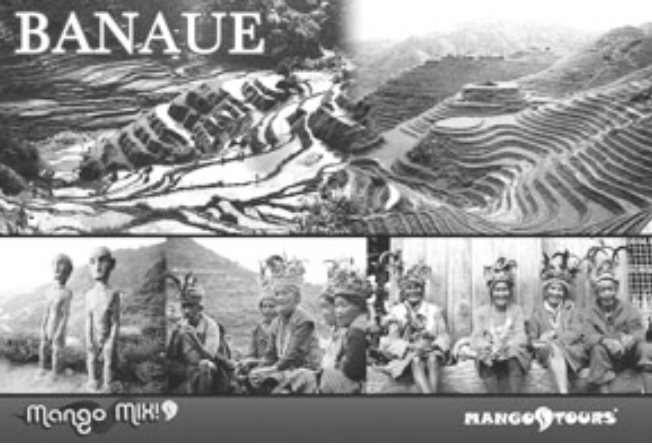Let us begin by calling it the way Ifugaos call it, Páy-yo. It has been around for 2,000 years in the Cordilleras. As their masterpiece, it becomes more impressive considering that it was built using “indigenous engineering” way before the arrival of our colonizers, the Spaniards. We all know this place as the 8th Wonder of the World—the famed Banaue Rice Terraces. Considering what our National Artist for Literature Virgilio S. Almario coined as the “Rice Terraces Syndrome;” we are, most of the time, at a loss when it comes to the names and histories behind our cultural icons for we rely too much on the convenience of western terms.
But this is not completely about the faults and cracks of our identity as a nation. Good news comes to the elevated fields of Banaue and to the whole archipelago as well. Recently, the World Heritage Committee of the United Nations Educational, Scientific and Cultural Organization (UNESCO), lifted the Banaue Rice Terraces out of its “World Heritage in Danger” list. The terraces were inscribed on the World Heritage List in 1995 due to its “outstanding cultural landscape that evolved over two millennia,” an inspiring example of tradition curbing the sometimes forceful and destructive hands of modernization. But 2,000 years can be a long time, and as it rolled, so did the toll on the terraces. In 2001, the Philippine government requested UNESCO to include the terraces on the list of heritage sites in danger. This was a conscious effort on the part of the government and concerned groups for it was a clear signal that they wanted to raise awareness that will echo around the Philippines and the world. And after eleven years, somehow, it paid off.
But there is still work to be done. Fifty percent of restoration remains to be accomplished. Hopefully, after restoration vigilance will spring out that will breed a mindset dedicated in preserving the terraces for good. This will ensure that there will be no need for future repair-works of grand scales. The government should also employ proper measures in empowering the Ifugaos by returning the “agri” word on “culture” regarding the terraces. The methods of farming that their ancestors practiced should go side by side with the scientific breakthroughs that will not inflict harm upon their crops, beliefs, and above all–their cultural identity. Páy-yo is embedded deep into our National Memory, and it is such a noble duty to preserve and fight for our memories.
***
Mango Tours is a provider of quality, affordable and convenient travel services that include low-priced airline tickets, customized Philippine and International Tour Packages, Cruises, Land Transfers, Passport and Visa Concerns. It is the #1 producer of reliable travel services particularly when it comes to Philippine travel arrangements to the Filipino-American community in the US Mango Tours is able to provide its customers with a number of travel options at affordable rates because of its consolidator contracts with over 11 airlines. Book your travel bookings with Mango Tours by calling its 24/7 U.S. toll-free number at 1-866-2-MANILA (1-866-2-626452). Visit www.mangotours.com to know more about its latest promos and travel offers.*






